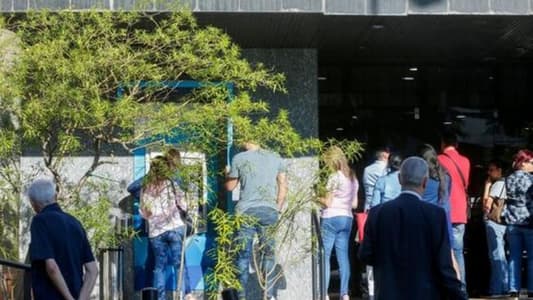Banks opened to customers on Friday for the first time in two weeks, following a wave of protests that led the prime minister to resign.
Queues of up to 20 people formed outside at least three banks in the capital, Beirut, as doors opened, Reuters witnesses said. Smaller numbers were observed at other branches.
“There is not a lot of panic. I thought it was going to be more,” said a customer who was holding a ticket showing he was 17th in line outside a bank, north of Beirut, where about 20 people were waiting.
Two weeks of political turmoil and the worst economic crisis since the 1975-90 civil war had fueled concern savers would rush to withdraw funds or transfer them abroad once banks re-open.
The central bank had promised not to impose capital controls when banks re-opened, measures that could hamper the currency inflows and investment Lebanon badly needs to weather its economic crisis.
There may be no formal capital controls, but banking sources said on Thursday that commercial banks would try to restrict transfers abroad to cases such as loan payments, medical expenses and family support.
A customer at one Beirut bank was told a letter would be needed from an overseas bank for a mortgage payment to be transferred abroad. A bank employee was overheard offering higher interest rates to another customer.
At a branch of Blom Bank, one of Lebanon’s biggest banks, in Beirut’s Hamra Street, around 10 customers entered the bank as its doors opened after 8 a.m., a Reuters witness said. The number then grew to 20.
As banks opened in the Sodeco district of the capital, around 20 people were queuing outside both a branch of Frasnsabank and a branch of Bank Audi, a Reuters witness said.
A nearby branch of Blom had no queue outside and a few customers inside. At a nearby Bankmed, around 10 people were waiting in the branch but there was no queue outside.






TWEET YOUR COMMENT